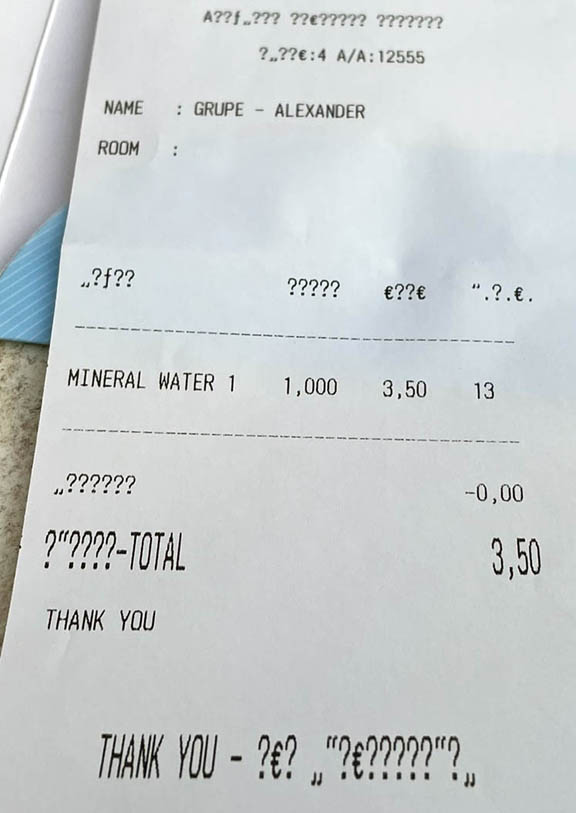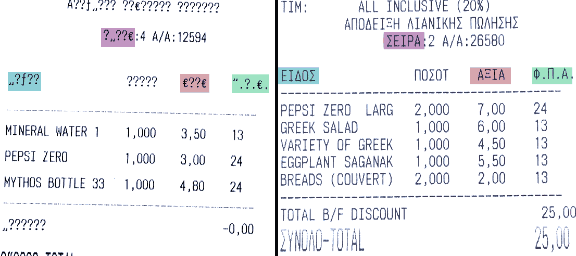Yes, we all � Unicode, or rather, the joy of competing legacy encodings and conversions.
Even when you’re on holidays, a nice soup of encoding chaos can give you a chuckle – especially when it’s presented to you as the bar tab and you first have to scratch your head a little:

Later I got another receipt, this time without mangled-up characters. Interesting! Even if mojibake looks random, charset conversions do not happen randomly. Indeed, we might guess some substitutions when we compare the receipts:

Most Greek letters turn to question marks, with some exceptions: “Α” (capital Alpha) always becomes the Euro sign “€”, and “Ε” (capital Epsilon) turns into double lower quotation marks. Since the number of characters stays the same, this seems to be an 8-bit fuckup (i.e. there’s no UTF-16 or UTF-8 involved, where we would expect multiple garbled output characters for some input characters). The fact that we see “ƒ” (small F-with-hook) and double quotation marks hints to code page 1252 (or code page 1253 for Greek?). Maybe the ancient code page 869 is involved, too?
| Char | Codepoint | UTF-8 | CP-1253 | CP-869 |
|---|---|---|---|---|
| Α | U+0391 | CE 91 | C1 | A4 |
| Ε | U+0395 | CE 95 | C5 | A8 |
| € | U+20AC | E2 82 AC | A4 | – |
| „ | U+201E | E2 80 9E 0A | 84 | – |
A-ha! Or should I say: Ηὕρηκα! The messed-up texts were originally CP-869-encoded, and those bytes were then interpreted as as Windows-1253!
…or were they? At least for the capital Alpha this would work, but the capital Epsilon would end up as “¨” (diaeresis) instead of
lower double quotation marks.
A font issue?
Also,
this requires a 1253-variant where A4 is the Euro sign, not the generic currency symbol “¤”.
Since I’m on holidays, I consider this riddle half-solved for now, and I’ll celebrate with half a liter of ΜΑΜΟΣ beer! :)